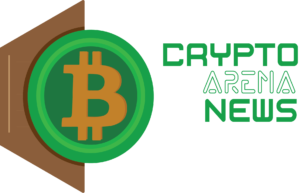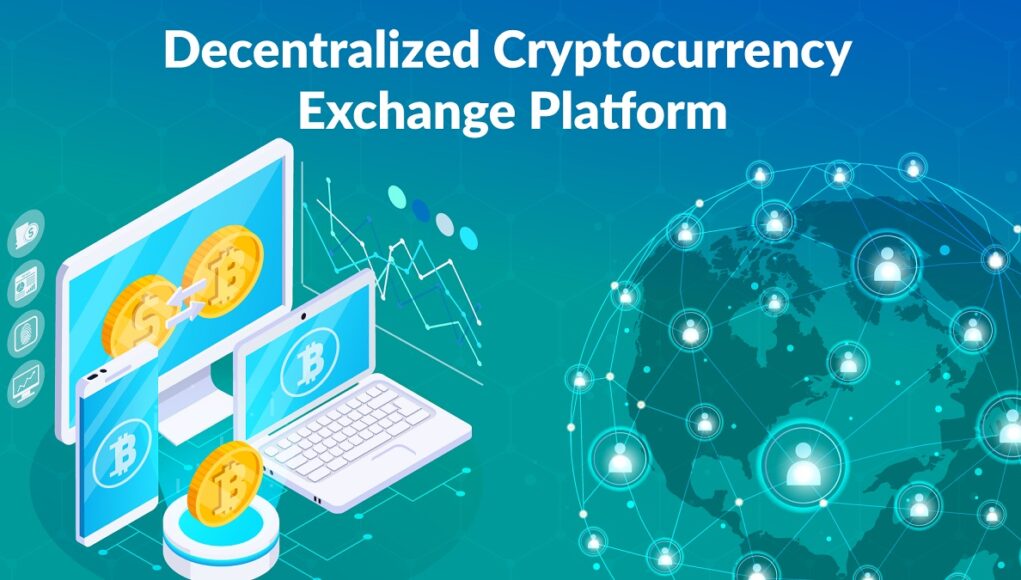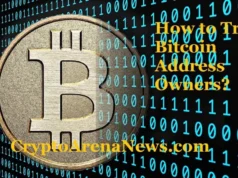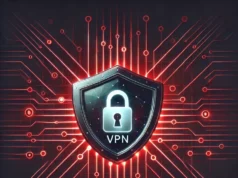Decentralized exchanges (DEXs) have emerged as a revolutionary solution in the realm of Cryptocurrency Trading. Unlike traditional centralized exchanges that rely on intermediaries to facilitate transactions, DEXs operate on decentralized platforms, offering users greater control, transparency, and security over their digital assets.
In This Article, We Will Dive Into The World Of Decentralized Exchange Development, Exploring Their Functionalities, Advantages, Popular Platforms, And The Process Of Building One:
Understanding Decentralized Exchanges
DEX transformed digital asset trading. Unlike centralized platforms, DEX operates on a peer-to-peer network, removing intermediaries and central authorities. Powered by blockchain technology, DEX empowers users with full asset control, ensuring transparency, security, and privacy.
Key Features of Decentralized Exchange Development
The Following Are Some Primary Aspects Of Decentralized Exchange Development:
Security and Trust:
Decentralized exchanges prioritize security as their foundational principle. By using smart contracts and distributed ledger technology, DEX reduces risks linked to centralized exchanges like hacking and fraud. The obvious and immutable nature of blockchain ensures that transactions on DEX are tamper-evidence and honest.
User Empowerment:
Decentralized exchanges epitomize the essence of user empowerment. With DEX, individuals retain ownership of their digital assets and can trade directly with other users without relying on intermediaries. This peer-to-peer interaction enhances privacy, minimizes censorship, and fosters a more inclusive financial ecosystem.
Liquidity Pools and Automated Market Making:
One of the notable advancements in decentralized exchange development is the introduction of liquidity pools and automated market-making mechanisms. These innovative features enable users to pool their assets together, facilitating efficient trading and liquidity provision. Market makers are incentivized through various means, ensuring a vibrant and liquid marketplace for digital assets.
Cross-Chain Compatibility:
Interoperability is a crucial aspect of decentralized exchange development. DEX platforms are increasingly incorporating cross-chain compatibility, allowing users to trade assets across different blockchain networks. This fosters seamless asset transfers, expands the reach of digital assets, and promotes overall liquidity in the decentralized ecosystem.
Advantages of Decentralized Exchanges
Enhanced Security and Privacy:
Decentralized exchanges, also known as DEX, bolster security measures by eliminating the reliance on centralized custody and enabling direct transfers between peers. This groundbreaking approach not only enhances the protection of assets but also establishes a robust framework that fosters trust and resilience in the digital ecosystem. By embracing a peer-to-peer model, DEX empowers users to engage in secure transactions while ensuring the integrity of their valuable holdings.
Global Access and Financial Inclusion:
Decentralized exchanges transcend geographical boundaries and offer global access to digital asset trading. Individuals from any part of the world can participate in DEX, enabling greater financial inclusion. The democratization of financial services brings forth an empowering force for individuals who lack access to traditional banking or have limited financial resources. It creates new opportunities for economic growth and wealth accumulation, paving the way for previously inaccessible prospects.
Transparent and Immutable Transactions:
The utilization of blockchain technology in decentralized exchanges ensures transparency and immutability of transactions. Every transaction on DEX is recorded on a public ledger, accessible to all participants. This level of transparency fosters trust among users, as it becomes exceedingly difficult to manipulate or alter transaction data.
Elimination of Counterparty Risk:
Traditional centralized exchanges involve counterparty risk, where users must trust the exchange to custody their assets. In decentralized exchanges, users have full control over their assets at all times. Smart contracts facilitate direct peer-to-peer transactions, eliminating the need to trust a centralized entity with custody of assets.
The Future of Decentralized Exchange Development
Decentralized exchanges prioritize security as their foundational principle. By utilizing smart contracts and distributed ledger technology, DEX mitigates the risks associated with centralized exchanges, such as hacking and fraud. The transparent and immutable nature of blockchain guarantees that transactions on DEX are tamper-evidence and sincere.
User Empowerment:
Decentralized exchanges epitomize the essence of user empowerment. Unlike centralized exchanges where users relinquish control of their assets to a third party, DEX empowers individuals by allowing them to retain full control over their digital assets. This level of control ensures that users are not subject to the vulnerabilities and risks associated with centralized exchanges.
Moreover, decentralized exchanges enable peer-to-peer transactions without the need for intermediaries. This eliminates the reliance on centralized authorities, reduces transaction costs, and provides users with greater financial autonomy. With DEX, individuals can seamlessly trade digital assets directly with other users on the network, facilitating a genuinely peer-to-peer trading experience.
Global Accessibility:
The global nature of decentralized exchanges brings forth unparalleled accessibility to individuals worldwide. Traditional centralized exchanges often impose geographic restrictions and require users to comply with complex regulatory frameworks. In contrast, DEX operates on a decentralized network, enabling anyone with an internet connection to participate in trading activities.
This global accessibility opens up a world of opportunities for individuals who may not have access to traditional financial infrastructure. It enables the unbanked and underbanked populations to engage in financial transactions and gain exposure to various digital assets. Decentralized exchanges act as a catalyst for financial inclusion, bridging the gap between individuals and the digital economy.
Elimination of Counterparty Risk:
Traditional centralized exchanges involve counterparty risk, where users must trust the exchange to custody their assets. In decentralized exchanges, users have full control over their assets at all times. Smart contracts facilitate direct peer-to-peer transactions, eliminating the need to trust a centralized entity with custody of assets.
By removing the reliance on intermediaries, DEX reduces the risk of hacking, theft, or mismanagement of funds. Users can execute transactions directly from their digital wallets, ensuring that their assets remain secure throughout the trading process. This elimination of counterparty risk instills confidence in users and enhances the overall trustworthiness of decentralized exchanges.
Challenges and Opportunities
While decentralized exchanges offer numerous benefits and transformative potential, they also face certain challenges and opportunities for improvement.
It Is Crucial To Address These Factors To Further Enhance The Adoption And Scalability Of DEX:
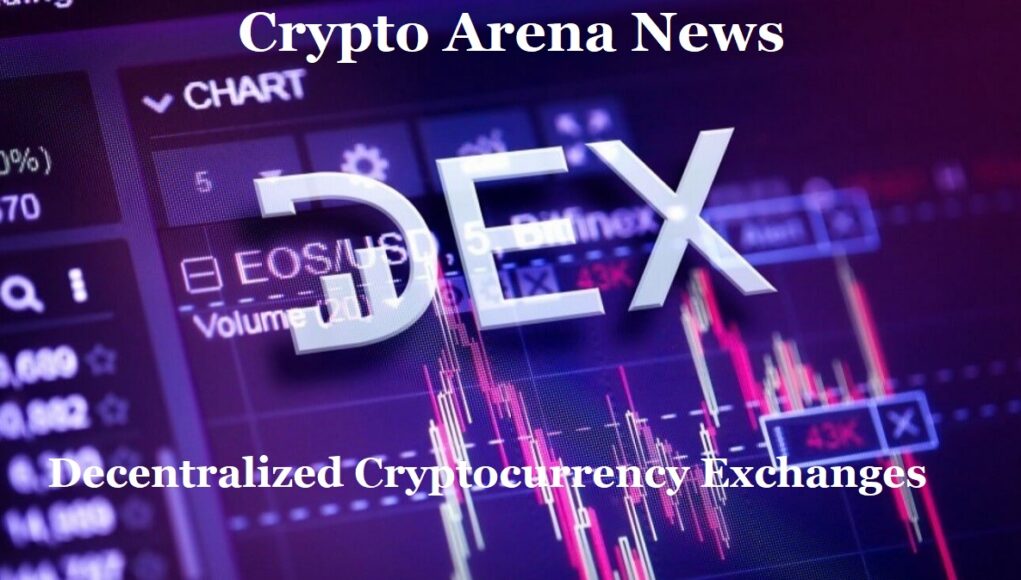
Scalability:
Scalability has been a persistent challenge for decentralized exchanges. As the popularity of DEX grows, the underlying blockchain networks must be able to handle a significant volume of transactions without sacrificing speed and efficiency. Various scalability solutions, such as layer-two protocols and cross-chain interoperability, are being explored to address this issue. These advancements aim to enhance the throughput and scalability of DEX, ensuring smooth and seamless trading experiences.
User Experience:
To achieve widespread adoption, decentralized exchanges need to prioritize user experience. User interfaces should be intuitive, responsive, and user-friendly, making it easy for individuals with varying levels of technical expertise to navigate the platform. Streamlining the onboarding process and providing comprehensive educational resources can also contribute to a positive user experience and encourage broader participation in decentralized exchange activities.
Regulatory Landscape:
The regulatory landscape surrounding decentralized exchanges is still evolving. Different jurisdictions have varying approaches and regulations concerning cryptocurrencies and digital assets. It is essential for decentralized exchanges to navigate this landscape carefully, ensuring compliance with applicable laws and regulations while maintaining the core principles of decentralization and user privacy. Collaborations with regulatory bodies and industry stakeholders can help establish a balanced framework that fosters innovation while addressing concerns regarding security and consumer protection.
User Experience and Adoption:
To drive widespread adoption, decentralized exchanges must prioritize user experience and create platforms that cater to users of all technical levels. A seamless and intuitive user interface is essential to attract both experienced traders and newcomers to the decentralized finance space.
Onboarding new users should be a straightforward process, with clear instructions and comprehensive educational resources available. This can include tutorials, guides, and interactive tools that help users understand the fundamentals of decentralized exchanges, such as wallet management, private key security, and executing trades.
Conclusion:
The future of decentralized exchanges holds great promise for revolutionizing the financial landscape. Through the principles of decentralization, transparency, and user empowerment, these platforms can provide secure and efficient alternatives to traditional centralized exchanges.
To realize this potential, decentralized exchanges must navigate the evolving regulatory landscape, collaborating with regulators and industry stakeholders to establish balanced frameworks that foster innovation while safeguarding user interests. Additionally, prioritizing user experience and adopting user-friendly interfaces can drive broader adoption and empower individuals to participate in the decentralized finance revolution.
